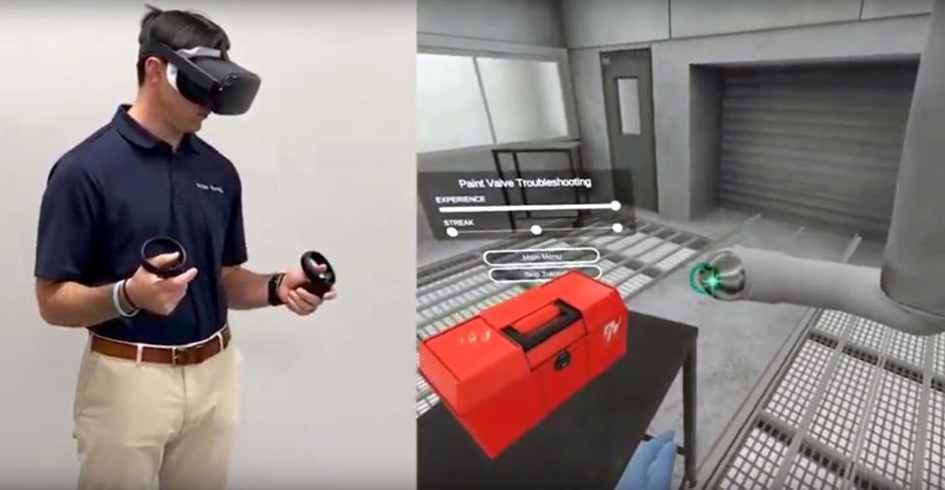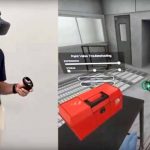TRANSFR VR, a virtual reality startup raises $12M in Series A funding to help displaced workers retrain for new jobs

With more than 12.6 million Americans still out of work, a growing number of employers and training providers are turning to emerge virtual reality technologies to provide hands-on, skills-based training for high-demand jobs. Enter TRANSFR VR, a New York-based immersive learning startup that is using virtual reality to simulate on-the-job training,
Today, TRANSFR announced it has raised $12 million in Series A funding to help people develop the skills they need to be successful. The round was led by Firework Ventures, an emerging venture fund that invests in the human-centered future of work companies. In conjunction with the funding, Transfer also announced that Ashley Bittner, co-founder of Firework and former Department of Education appointee, will join its board.
Founded in 2017 by Bharani Rajakumar, TRANSFR’s core technology is a dialogue system between the trainee and its virtual coach. This unique VR apprenticeship model lets trainees move at their own pace and provides strategic, specific feedback to help them learn from their mistakes and master the skills they need to successfully perform their job.
“By simulating on-the-job experience, we’re helping to transform skills training into a more engaging and immersive experience and bridge the gap between work-based learning and classroom instruction,” said Bharanidharan Rajakumar, founder and CEO of Transfer. “Empowering high-potential workers with access to hands-on, practical training is unlocking better careers and higher wages—regardless of their employment history.”
In Alabama, TRANSFR is partnering with AIDT, Alabama’s workforce agency, and the Alabama Community College System to use TRANSFR’s curriculum and Oculus Quest with Oculus for Business virtual reality platform to provide skills training for careers that need not require a 4-year degree. Through a new statewide partnership called JumpstartAL, job-seekers across the state can access simulation-based training to prepare for roles in fast-growing industries such as automotive manufacturing, construction, and other skilled trades.
“Making skills training more accessible, relevant, and engaging can help to bring technical careers to life and open them up to workers in search of their next step,” said Ed Castile, deputy secretary of Alabama Department of Commerce and Executive Director, AIDT. “This work is helping to bridge the gap between unemployed workers and hands-on, technical skills training required in fast-growing fields across our state.”
“Community colleges are always on the front lines of trying to connect education and training with the demands of employers at the state and local level,” said David Walters, director of special projects and system initiatives at the Alabama Community College System. “The lifelike simulations we’re employing are helping to equip students to compete and thrive in high-growth industries.”
Beyond the state of Alabama, TRANSFR’s suite of immersive learning technology and assessment tools is already being used by local workforce agencies, schools, colleges, and employers across the country, including Lockheed Martin, and Mazda Toyota Manufacturing.
“The troubling reality is that the current chapter of labor market volatility is perpetuating long-standing wage and skill gaps among women, low-income families, and people of color,” said Ashley Bittner, founding partner of Firework Ventures. “We view immersive learning technology as a powerful tool in building a more equitable and inclusive labor market while filling gaps for industries and employers that need talent now.”
Firework joins TRANSFR’s existing investors, which include Album VC, Imagination Capital, world-renowned professional golfer Greg Norman, veteran education executive Stuart Udell, Tampa Bay Lightning owner Jeff Vinik, and Degreed founder David Blake.
In January 2020, TRANSFR was named a “2020 Innovator to Watch” by national education and workforce nonprofit JFF, part of an analysis of more than 300 companies of all sizes and at all stages selected based on “innovation, the efficacy and cost-efficiency of their offerings, and ability to generate social impact.”




